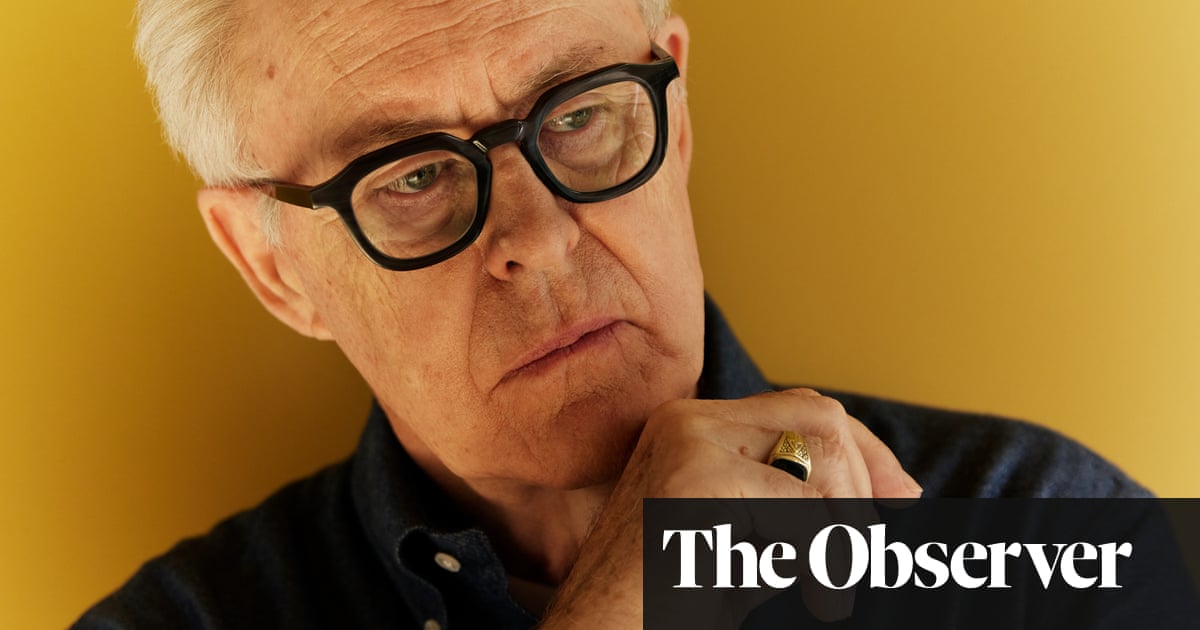The Royal Court's latest production, Giant, has captivated audiences with its thought-provoking portrayal of a tumultuous summer lunch with Roald Dahl
The Royal Court’s latest production, Giant, has captivated audiences with its thought-provoking portrayal of a tumultuous summer lunch with Roald Dahl and envoys from his publishers, set against the backdrop of his antisemitic article in a literary journal. John Lithgow, the man behind the character, shares his insights into the complexities of the playwright’s mind and the play’s exploration of the Israel-Palestine conflict.
Lithgow begins by highlighting the physical resemblance between himself and Dahl, which helped secure his role. "I was first sent the script mainly because I’m as tall as Dahl was. And I do look a lot like him. Though I’m not sure I’m particularly proud of that part," he says with a chuckle. Beyond their physical similarity, Lithgow acknowledges that he and Dahl share few common traits, with the former being genial and enthusiastic, whereas Dahl’s on-stage character is a charmer, albeit one with a darker side.
Dahl, an esteemed children’s author, had published a review of a book about the 1982 Lebanon War, in which he expressed strong anti-Palestine views, which many interpreted as antisemitic. This play tackles these themes with finesse, asking the audience to separate the art from the artist. Can we distinguish between Dahl’s opinions and his literary legacy? Lithgow believes the play offers a platform to explore this question. "It’s a psychological suspense thriller. But it’s people sitting around for a Sunday lunch. I’m expecting audience gasps," he says.
As an actor, Lithgow has a knack for playing complex, contradictory characters, citing his experience in TV and film. "I seem to be the go-to person for perverse and contradictory characters. The extreme of that is the Trinity Killer in [HBO’s] Dexter: a man who professes to be benign and ordinary, but who has this ferocious compulsion to butcher people." Lithgow’s experience playing characters with two sides has led him to question the notion of self and the human capacity for both good and evil.
Giant, while set 40 years ago, feels strikingly relevant in today’s climate. Lithgow notes that the play’s themes of prejudice and discrimination are timeless, and the controversy surrounding it has only heightened his expectations for its impact. "I’m a little worried that I’m defaming Dahl… just because we are speaking some truths about him that need to be told. But it’s going to be quite scandalous, I think. It takes a lot of courage from us all to do this play. It’s going to confront audiences in ways they won’t expect. It gives me anxiety."
Lithgow’s approach to acting is to empathize with his characters, citing his experience playing characters like Albert Einstein and Winston Churchill. "We all have these contradictory qualities. It’s my job to illuminate that. I apply the same basic rules to daffy comic roles and horrific parts in psychological suspense thrillers. Embody the character. Try to explain them to people, so they make emotional sense." He believes this perspective can be limitless, applying it to even the most polarizing figures like Donald Trump. "Take Trump. I despise all he stands for, yes, but I also feel sorry for him. He’s a terribly unhappy man who lives with demons and carries such a weight on his shoulders. I want him defeated, politically, in this next election. But to see another human destroyed? As an actor, you always have to be on the side of the character you’re playing. Sympathetic to him or her, regardless."
The importance of empathy is a theme that resonates throughout the play, as Lithgow’s character tries to connect with his publisher’s representatives. "I think that outlook on the world can’t help but shape how you see things," he concludes. "Giant" is at the Royal Court until 16 November.
Conclusion:
In conclusion, John Lithgow’s performance in Giant is a testament to his ability to bring complex characters to life. As an actor, he believes in the importance of empathy and understanding, even when dealing with characters who hold controversial views. The play Giant serves as a powerful reminder of the need to separate art from the artist, encouraging audiences to engage in a more nuanced discussion of the Israel-Palestine conflict.
FAQs:
- When is the play "Giant" at the Royal Court?
Giant is at the Royal Court until 16 November (royalcourttheatre.com). - What is the play about?
Giant is a play set in 1983, exploring the character of Roald Dahl and his dealing with antisemitism in his writing. - What is John Lithgow’s character in the play?
John Lithgow plays the character of Roald Dahl in the play. - How does Lithgow approach his role?
Lithgow believes in empathizing with his characters, striving to understand their motivations and making them relatable to the audience.

COMMENTS